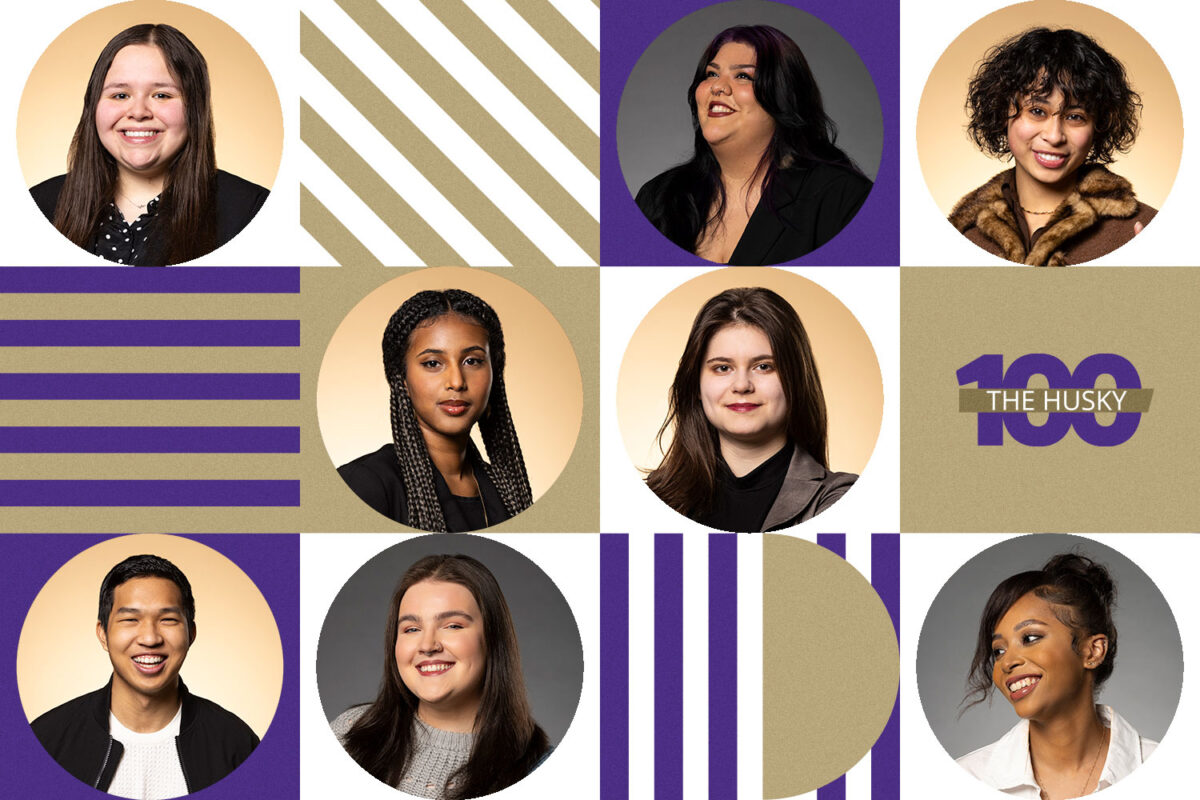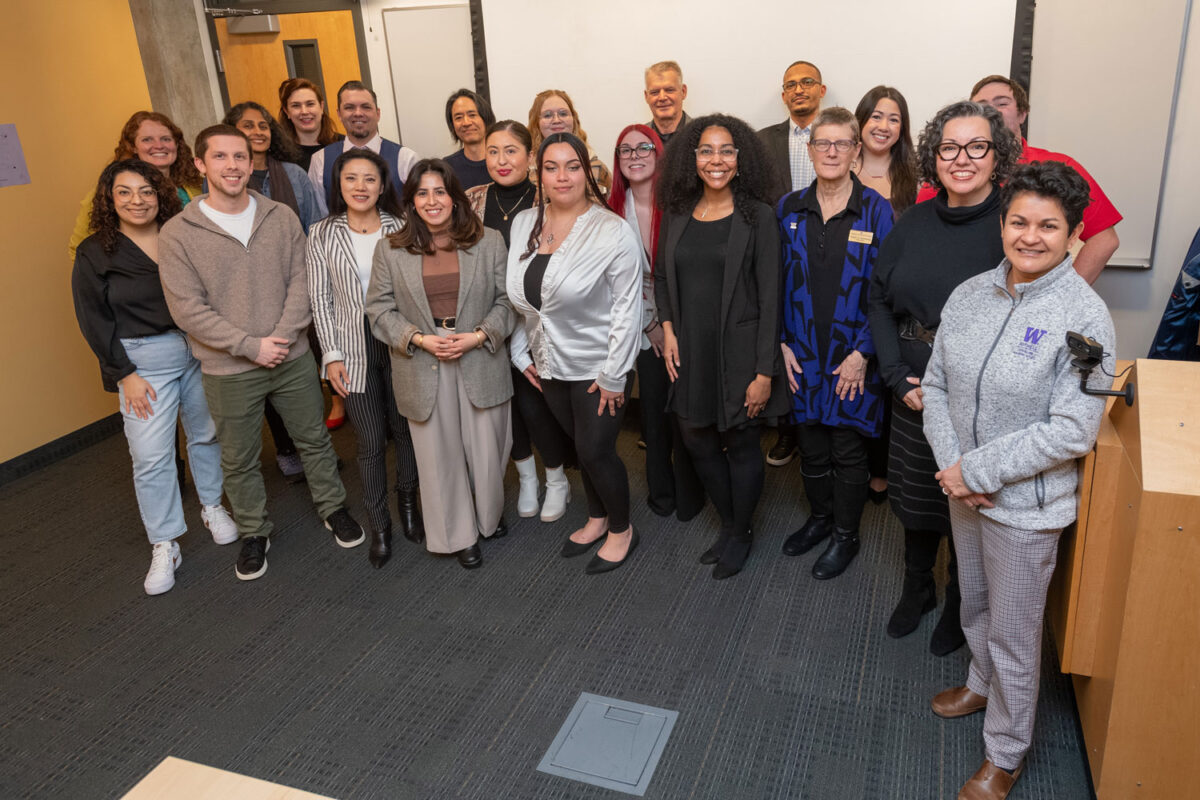How do you bring about true change in an institution? How do you reform and remake a system like community health care in the United States that has had racism, classism, sexism, homophobia and xenophobia baked into it for decades?
At the University of Washington Bothell, one answer is through education, bringing more diverse and well-informed professionals into the health care field. That is among the goals of a new degree program starting in autumn 2023 in the School of Nursing & Health Studies.
The Master of Science in Community Health & Social Justice aims to be an education like no other.

“We want to make sure that we’re not putting another program into place that was already represented in other schools and universities across the area. We want to make sure we are meeting a specific niche need,” said Dr. Grace Lasker, teaching professor in the School of Nursing & Health Studies. “We’ve really focused on people’s need to have the tools and knowledge at the institutional and systems level to make change.”
Lasker said the program has been several years in the planning and partly responds to the desire of undergraduates in the school’s fast-growing Health Studies program who wish to continue their studies at the master’s level.
“As a school,” she said, “we decided to jump into this, really do our due diligence to provide this program — and here we are.”
Important community input
Part of this due diligence involved connecting with a number of stakeholders and community partners, many of whom experience the inequities of health care firsthand and in their work.
Among these is Rosario Reyes, who directs the Lynnwood-based Latino Educational Training Institute which empowers young workers and meets other needs for Latinx communities. Reyes sees all too clearly the inequities of community health for low-income, immigrant and senior populations, and said she fully supports the new UW Bothell program.
“To me, the more we educate young professionals about how to really contribute to social justice, the greater the impact we’re going to have in the community for change,” she said.
Reyes, herself an emigrant from South America, said she thinks some people don’t accept that there are institutional barriers and inequalities. “They’re not fully aware of these concepts … they just don’t understand the importance of going a little bit extra to support people in poverty or who do not understand how the system works.”
And until there is wider education, she said, “nothing will change.”
Accessible from the start
The new MS in CHSJ will be a hybrid program, combining a weekly in-class meeting with both synchronous and asynchronous course work online. Students will earn 60 credits across two or four years, depending on whether they choose to study full or part-time, or move between those modes.
By design, this model will make the program more accessible to students — many of whom might already be employed in health care roles — and help them balance work and school, Lasker said.
“We realize your life can change at the turn of dime. You have to work. This is the real world,” she said. “We want to advantage all students who have a passion for changing the world. They are the ones who are actively doing that work right now, so why would we want to stop that?”
Through their studies, students will explore the root causes of health inequities, promote and implement anti-racist policies and social justice through community health programming, and develop the leadership skills to serve and uplift historically marginalized communities.
Classwork will be in social justice, history and ethics, research theory, advocacy, social epidemiology, inclusive health care management and related topics.
Dr. Jason Daniel-Ulloa, an assistant teaching professor who will teach in the new program, said that he expects to see a student population that is a “little bit different” than at other public health programs in the area — and that this is all to the good.
Made for students who want to make change

“Hopefully, having the option to do the master’s program here at UW Bothell will overcome some of the perceived barriers of going to grad school,” said Daniel-Ulloa. “This might be a more comfortable transition for many students, and through that we should also get a broader-based population into the field of health studies and public health.”
Lasker spoke to this point as well, saying that in attracting students, the CHSJ program will de-emphasize gatekeeping “barriers” such as test scores, grade point averages and math grades as “a way to get people out of programs rather than getting them in programs.”
She added, “We are centered on those individuals who really have the passion. They don’t have to come in already knowing how to do this work — that’s the whole point. We’re going to make the journey together. We’ll teach them to do the epidemiology, the math and all that. They don’t need to come with that.
“They need to come with that desire to really do the hard work, both internally and externally, then look at systems and say, ‘We really have to rethink all of this and build it up now.’ Those are the people we’re looking to attract.”
The change we’ve been waiting for
Put another way, Lasker said, “We’re not looking for the person who has done, we’re looking for the person who has yet to do!”
She stresses, too, that students will be supported every step of the way. “When there’s doubt, when it seems like it’s too hard, too big — or seems like there is too much to overcome — we are an ally in that space with that student.”
The CHSJ program will change and evolve to continue to meet society’s need as well, said Lasker, noting that it is a fitting addition to UW Bothell’s Master of Nursing program, which emphasizes leadership skills and has been ranked among the best in the nation in recent years.
“Health is not just going to the hospital or getting a diagnosis,” Lasker said. “Health is resiliency, health is upstream and thinking about those things that impact our wellness at the end of the stream.
“We want to be a program that is known for doing the hard work. And so I really hope our community partners a couple of years from now are saying, ‘This is the change we’ve been waiting for, and it’s these students who are doing that work.’”
Daniel-Ulloa added, “Leaving this program, you won’t be able to fix the world, but the idea is that you will have a skillset that you can use to apply to making real change, not just perceived or expected change.”



